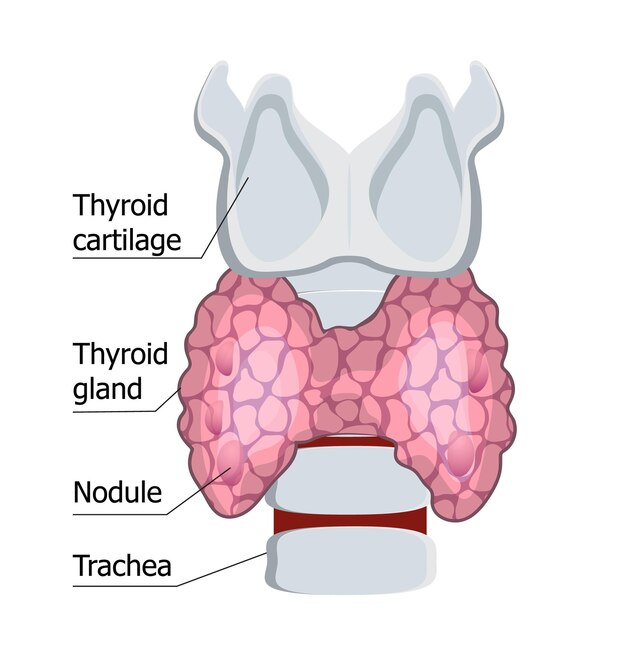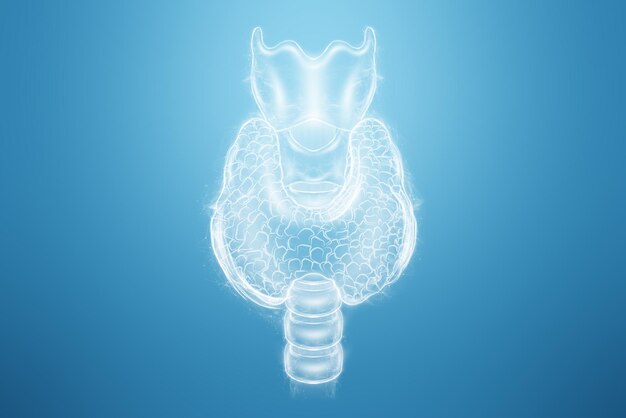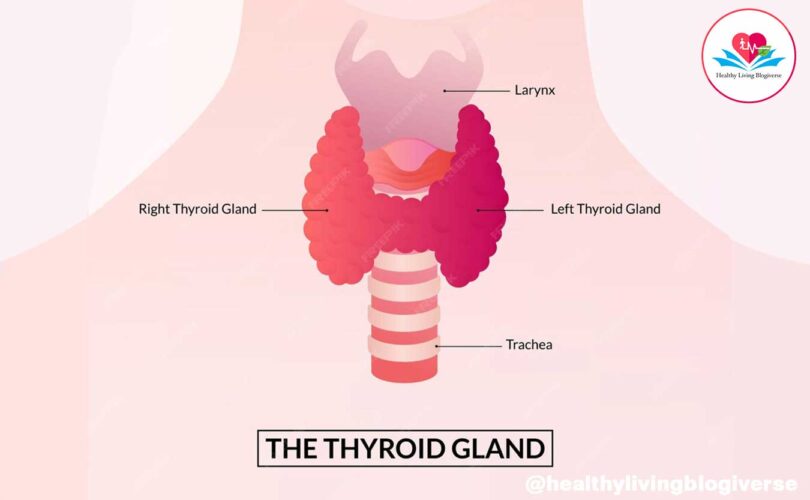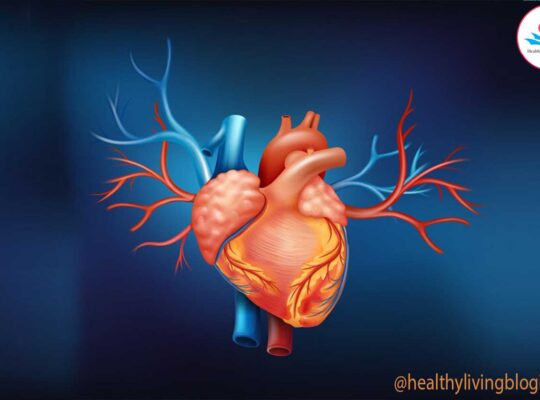The thyroid gland is a small, butterfly-shaped organ located in the front of your neck, wrapped around your windpipe (trachea). It serves as a crucial gland in your body, responsible for producing and releasing hormones that regulate various essential functions. These hormones play a vital role in controlling your metabolism, energy levels, growth, and development.
However, when the thyroid gland malfunctions, it can have a significant impact on your overall well-being. If your thyroid produces an excessive amount of thyroid hormone, a condition known as hyperthyroidism occurs. This can lead to symptoms such as rapid weight loss, increased heart rate, anxiety, and irritability.
Conversely, when the thyroid gland fails to produce enough thyroid hormone, it results in hypothyroidism. Hypothyroidism can cause symptoms like fatigue, weight gain, depression, and cognitive difficulties.
Both hyperthyroidism and hypothyroidism are serious medical conditions that require proper diagnosis and treatment under the guidance of a healthcare provider. It is essential to consult your healthcare professional if you suspect any issues with your thyroid, as early detection and appropriate management can significantly improve your quality of life.

Thyroid Disease: Who Does It Affect?
Thyroid disease is a condition that can affect individuals of all ages, genders, and ethnicities. It is estimated that millions of people worldwide are affected by thyroid disorders. Both men and women can develop thyroid problems, although women are more prone to them.
Several factors can increase the risk of developing thyroid disease, including:
- Family history: If you have a close family member, such as a parent or sibling, with a thyroid disorder, you may have a higher risk of developing one yourself.
- Age: Although thyroid disorders can occur at any age, some types are more common as you get older. For example, hypothyroidism (underactive thyroid) is more prevalent in middle-aged and older adults.
- Gender: Women are more likely to experience thyroid issues than men. This discrepancy may be due to hormonal changes that occur during menstruation, pregnancy, and menopause.
- Pregnancy: Pregnancy-related hormonal changes can affect the function of the thyroid gland, leading to temporary thyroid issues or even the development of permanent thyroid disease in some cases.
- Autoimmune conditions: Certain autoimmune disorders, such as Hashimoto’s disease and Graves’ disease, can affect the thyroid gland and lead to thyroid dysfunction.
- Radiation exposure: Exposure to radiation, particularly during childhood or in the neck area, can increase the risk of developing thyroid disorders later in life.

What common symptoms can happen with thyroid disease?
There are various symptoms that may indicate the presence of a thyroid disease. However, it can be challenging to differentiate these symptoms from those of other medical conditions or normal stages of life. Generally, symptoms of thyroid disease can be categorized into two groups: those associated with excessive thyroid hormone (hyperthyroidism) and those associated with insufficient thyroid hormone (hypothyroidism).
Signs and Symptoms of Hyperthyroidism:
- Anxiety, irritability, and nervousness.
- Difficulty sleeping.
- Unexplained weight loss.
- Enlarged thyroid gland or goiter.
- Muscle weakness and trembling.
- Irregular menstrual periods or cessation of menstrual cycle.
- Sensitivity to heat.
- Vision problems or eye irritation.

Signs and Symptoms of Hypothyroidism:
- Feeling tired
- Gaining weight
- Experiencing forgetfulness
- Having frequent and heavy menstrual periods
- Having dry and coarse hair
- Having a hoarse voice
- Experiencing an intolerance to cold temperatures
Here are some tips for managing thyroid health:
- Stick to a well-balanced diet: Make sure your diet is low in sugar and processed foods. Excessive sugar can lead to inflammation, which may worsen the symptoms of an underactive thyroid.
- Moderate your intake of vegetables: While vegetables like cabbage and broccoli are generally healthy, they can interfere with thyroid hormone production if consumed in excessive amounts. Enjoy them in moderation as part of a varied diet.
- Manage stress levels: Find effective ways to reduce stress in your life. Chronic stress has been linked to thyroid hormone resistance, so it’s important to prioritize your mental and emotional well-being.
- Incorporate regular exercise: Aim to exercise three to five times a week. Engaging in physical activity can help increase muscle mass, boost your metabolism, and prevent weight gain or lethargy associated with an underactive thyroid.
- Maintain a healthy body weight: Strive to maintain a healthy body weight through a combination of a balanced diet and regular exercise. Consult with a healthcare professional for personalized guidance.
It’s important to note that anyone can be affected by thyroid disease, regardless of their age, gender, or background. If you suspect you have a thyroid problem or have concerns about your thyroid health, it’s best to consult with a healthcare professional for proper evaluation and guidance.







